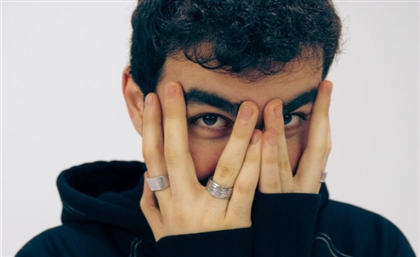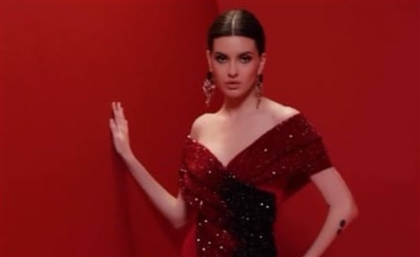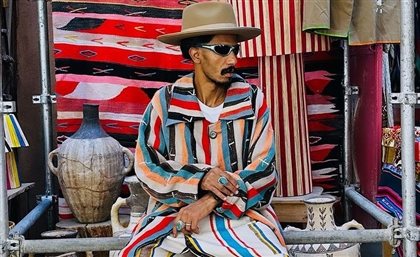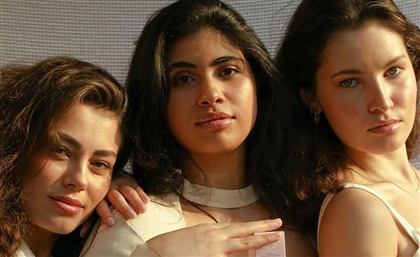13 Ways Fouad El Mohandes Shaped Egyptian Culture Through His Art
On the day he would've turned 92, the icon gets commemorated with a Google doodle, so we show some appreciation for all the times he put himself out there and made contributions to Egyptian culture over the generations.
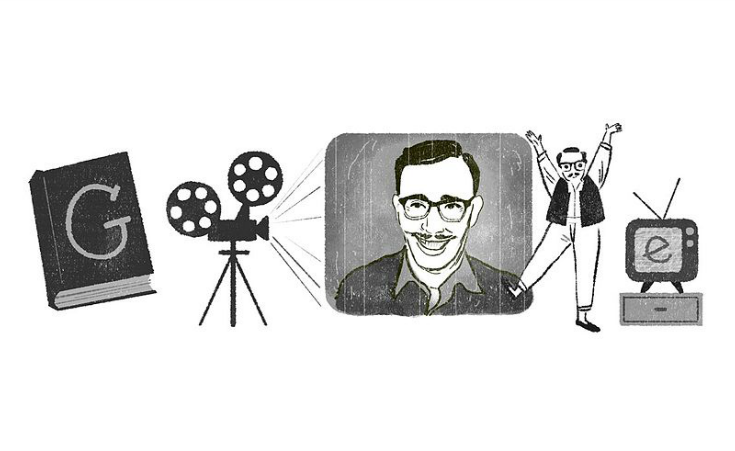
A great mustache, a pair of nerdy glasses, and a fabulously receding hairline, all in one animated face. The only time we've ever loved all these physical traits together were in Fouad El Mohandes, who coupled them with a passionate career brimming with all kinds of unforgettable performances, whether they were on the silver screen, small television sets, on a stage, or during the morning radio show. The Western world rolled on the floor watching Charlie Chaplin, and here we were, enjoying every decade with El Mohandes' brilliance. Also, him and Shewikar are our original #RelationshipGoals.
Today, Google Egypt put on a doodle in his honour. Happy Birthday, Mr. X!
E3terafat Zog (1964)
Never tell your wife anything, even if you’re about to. Because she will tell her mother, and the Egyptian meddling will begin and never end. That’s the mistake Waheed made, when he confessed to his wife Latifa (Shewikar) about his fantasies about kissing their sexy neighbour Bothayna (Hend Rustom) when an engine broke down in their airplane and they thought they were dying. The engine was fixed. But their relationship was just about to fall apart. Fun times.
Akhtar Ragol Fel 3alam (1967) & 3awdet Akhtar Ragol Fel 3alam (1972)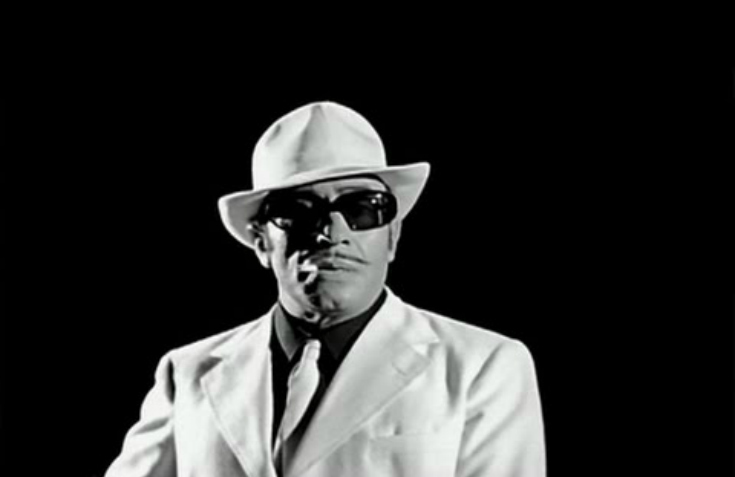
The first one to bring the genre of American gangster films to Egypt was El Mohandes through the movie ’The World’s Most Dangerous Man' and its sequel 'The Return of the World’s Most Dangerous Man' where he takes on two roles. He plays Mr. X, one of Chicago’s most notorious gangsters, who for some reason, is coming to finish some sort of job in Cairo. Authorities take note and ask introverted airport employee, Zaki - who El Mohandes also plays - to take on the role until they can catch Mr. X in the act. How badass is this?
Motarada Gharameya (1968)
The first film to tell us about men’s crazy fetishes when it comes to women — he had a serious shoe fetish. In this film, Mounir, an affluent man who works as an airline supervisor, has persistent flings with women from all around the world — mostly airplane attendants. The Egyptian woman, Mona (Shewikar), is the one who genuinely loves him. Does anyone remember when Shewikar dressed up as women from the five major continents? That song is still lit.
Ard El Nefaaq (1968)
How El Mohandes took on a serious novel, with all its magical realism, and made it into a comedy film, we’ll never know — but it worked. This film was basically a reality check of how we interact with each other, and with ourselves. Mas’oud Abul S’aad, unhappy with his inability to change his life, takes a walk and finds a store in the middle of nowhere selling ‘(im)moral pills,’ and he actually ends up buying some pills for ‘good deeds.’ He finds that he is actually unhappier, and ends up buying ‘hypocrisy pills’ and his life improves. He then accidentally takes ‘honesty pills’ and ends up telling everyone how his hypocrisy is what got him to places. He loses everything. Then he takes generosity pills, and dumps them in a central water tank, so that everyone will drink of them, and accumulate goodness. Seriously, a must-see movie if you want to see how dependent we are on external factors to prompt us to act the way we should; whether that's generously, lovingly, kindly, or bravely. Pretty sure everyone wanted to pop pills after this film.
Saffa7 El Nesa2 (1970)
Probably an Egyptian family favourite because it adds a humorous touch to things like…serial murders. El Mohandes loved his adventure-action-comedies. In this one, he plays the character of Mohsen, who works as a journalist for a crime newspaper. There has been a pattern of disappearing and murdered women, and he, along with his fiancée Sausan (Shewikar) decide it would be a good idea for him to pretend to be the serial killer — once he is caught, this actually provokes the serial killer to kidnap Sausan, and that helps authorities catch the murderer; a plan that can only be mastered by a bored couple, who aspire a turning point in their career. Seriously, it’s hilarious.
Abo El Fasaad Song
We want to know immediately if you have ever been to a birthday in Egypt and didn’t sing this song at the end of the boring birthday song. This is actually a trademark of all Egyptian birthdays, more than gateaux and the streamers from your first birthday. If you remember the cartoon clip to this song, it’s about how all the birds were celebrating the birthday of Abulfasad, and while all the other birds are familiar, we didn’t know what an abulfasad is. But they’re pretty special. And all of us, once a year, get to be that. El Mohandes lives in all of our birthdays, as he was the voice of the parrot.
El Ragel Da Hayganneni SongA Ramadan favourite tune, and probably a great way to refer to your husband when you want to tell him off but also be cute and jokey about it. This was Sabah, who in the song, along with El Mohandes, tells us about how he requests a ton of food to break his fast — and he says, well, he’s hungry and tired, so obviously he wants to eat. She responds that people should be more economical and thankful for the minimum. The song goes on, and it’s great — give it a listen and see how it diverges into different topics — typical Egyptian couple drama.
Sayedety El Gamila (1969)
My Fair Lady! This is universal awesomeness, and he adapted it beautifully and it became an Egyptian classic. This was a play that follows Kamal, who finds a beautiful heckler, Sodfa, and teaches her etiquette and class. It really goes deep into transcending class differences, but also, navigating situations where they act as barriers to love. The 2-minute video above sums the whole thing up.
Hala 7abibty (1985)
Another adaptation that was successfully transformed and perfectly fit into Egyptian reality. This is basically the story of cinema’s favourite orphan, Annie. After this play, Hala (Ranya) became Egypt's favourite orphan, with her stubborn personality, magical charm, and shocking intelligence, that steals the heart of the billionaire and his secretary. She reveals to them all the mishaps, the shortcomings, and the tragedy and exploitation of orphanages. El Mohandes and Ranya sing an adorable father-daughter-like song above.
Sokk 3la Banatak (1980)
Any Egyptian family will gather around and watch this if it’s on. They’ll specifically wait for the moment (in the video above) Fawziya exclaims, “Mesek 2eedi, 2al ehhh bey3adeeni!” This brilliant play was not only genius on El Mohandes’ part, but we were able to see so many sides of renowned actors we loved for the years to come, from Ahmed Rateb who starred as Sameh, to Sherihan who took on the role of the scheming and spoiled Susu, to Sanaa Younis who unforgettably starred as the hilarious Fawziya; their talents were evidently encouraged and fostered by El Mohandes’ leadership in performing arts. The story follows the widowed father, Raafat, who wants his three daughters married so he can marry his sweetheart, Esmat. Susu finds out about this and makes sure his plan is harder, if not absolutely impossible, to implement, a.k.a the brattiness of every Egyptian child.
Fawazeer 3ammo Fouad (1980s–1990s)
These are not the first fawazeer (trivia and riddles) Egyptian television broadcasts, but they were the first targeted at children as the main audience. For two decades, Egyptian children waited every Ramadan for the fun and educational episodes that presented trivia and general fun facts in an interactive way, all thanks to 3ammo Fouad. Look at all the kids excited to learn. Good days, good days.
Sa3a Le 2albak (1953−Early 1960s)
The ups and downs of a husband and wife, was a comical programme that highlighted social issues, especially found within marriages and relationships with others in your surroundings. If you're familiar with a wife nagging her husband, always ending her questions with, "… Ya Mahmoooud ya 7abibi," this is where it came from. Listen to a recording from the original programme and familiarise yourself with our societal problems which were a lot less, and much more amusing to talk about.
Kelmetein W Bas (1968)
Every morning, since the 1960s, Egyptians did whatever they needed to do each morning at 7:55 AM to the voice of El Mohandes on this radio program. This was a socially charged program, where he points out the problems in our society and how to overcome them, through different scenarios.
3a2elet Zizi (1963)
This was a secondary role, but it’s not humanely possible to have watch this film and not fall in love with El Mohandes’ geeky character — he basically spends the entire film not aware of his family’s shenanigans, and totally not reacting to the matchmaking happening with his future wife, all he cares about is his invention, the fabric-making machine. At the end of the film, he breaks out in his infamous line, “El makana talla3et 2omash!” The machine finally worked, just as order was restored in the family.




